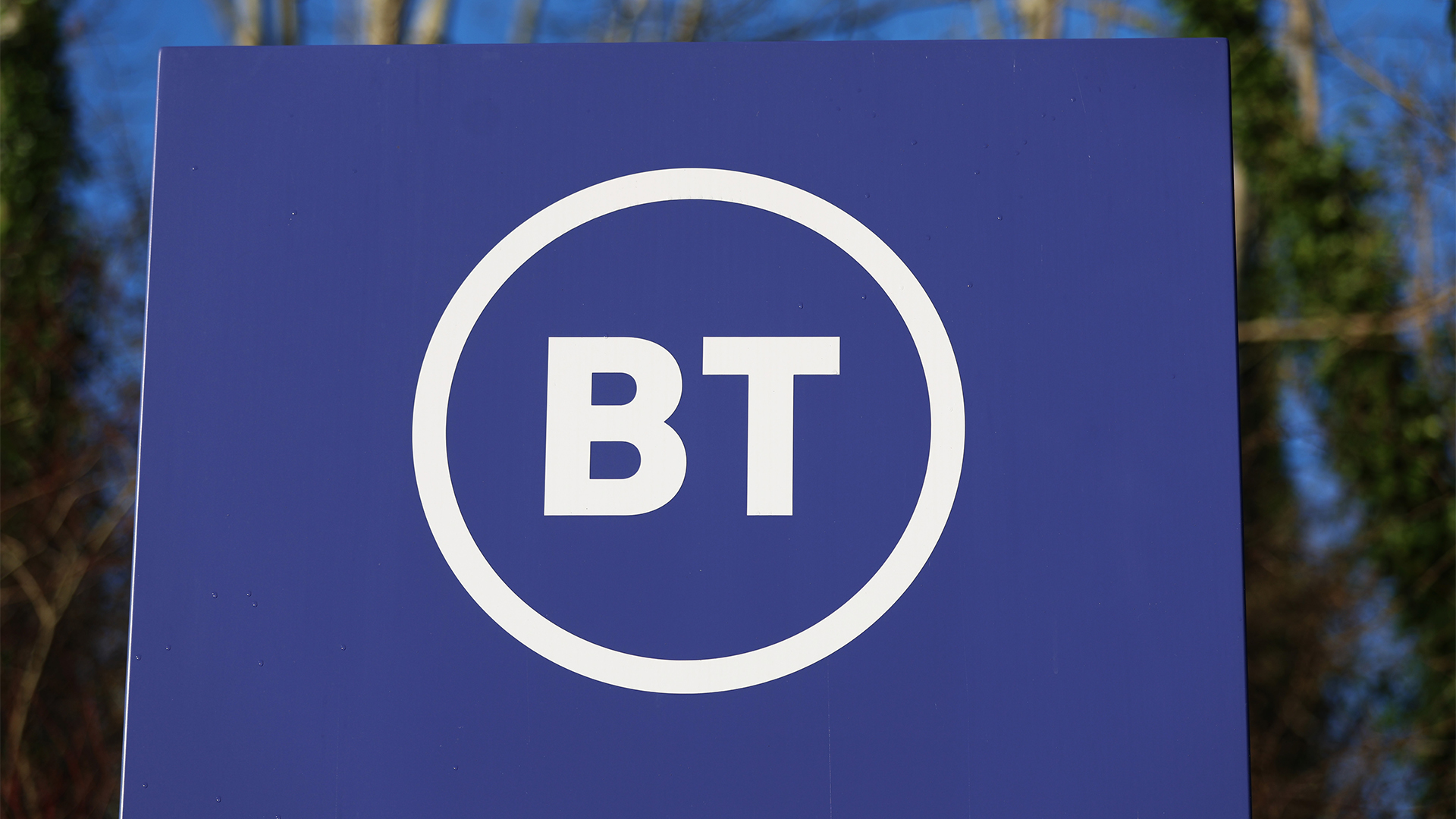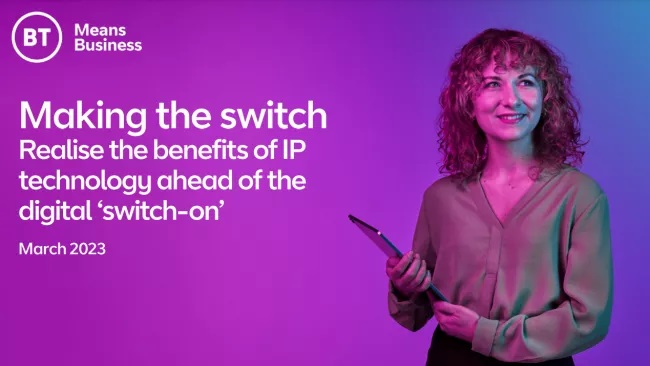UK firms urged to prepare for analogue phone switch-off as 2025 deadline approaches
With the analogue phone switch-off looming, organizations need to consider alarm systems, EPOS machines, and more, according to IT experts


Sign up today and you will receive a free copy of our Future Focus 2025 report - the leading guidance on AI, cybersecurity and other IT challenges as per 700+ senior executives
You are now subscribed
Your newsletter sign-up was successful
UK businesses have been urged to accelerate preparations for the analogue phone switch-off in 2025, with experts warning of serious disruption for those who fail to adapt in time.
In 2015, BT announced plans to retire its Public Switched Telephone Network (PSTN) and integrated services digital networks (ISDN) by the end of 2025.
Instead, customers will be migrated to new digital technology using an internet connection, such as Voice over Internet Protocol (VoIP), Digital Voice, or All-IP telephony.
Already, it's no longer possible for businesses to purchase traditional landline contracts nor PSTN-enabled devices such as legacy phones or fax machines.
"The landline isn’t going away, but is being upgraded to replace the decades old analogue technology that is increasingly unreliable and is no longer supported by suppliers and manufacturers," said BT.
"Customers risk facing increased service outages if this urgent infrastructure upgrade isn’t carried out now by BT and other operators. This new future-proof, digital landline technology is also a major step towards preparing the country for a full fiber future, in support of the UK government’s gigabit connectivity ambitions."
The rollout has already started, with the North West and London getting the new Digital Voice late last year, and the West Midlands, South East, Wales, and East Anglia set to follow suit during the spring.
Sign up today and you will receive a free copy of our Future Focus 2025 report - the leading guidance on AI, cybersecurity and other IT challenges as per 700+ senior executives
The North East, Scotland, and the South West to be migrated during the summer.
Andy Fung, communications solutions architect at Espria, warned that some businesses may not be aware that significant changes are looming, and urged firms to ramp up preparations.
"Already, large parts of the UK can no longer receive new ISDN or PSTN provisions," he said. "Changes are coming and your area may already be affected - Mildenhall and Salisbury were switched off last year as part of the test roll-out."
According to Espria, UK businesses need to properly understand the impact of the changes, particularly for often overlooked services such as lifts, alarms, broadband, PDQs, and EPOS devices, as well as phones.
RELATED RESOURCE

Discover how you can build a solid SASE architecture that helps you achieve your zero trust goals
"Businesses have a duty to themselves to ensure they do not lose access to vital communications tools, and that means looking into exactly what systems are at risk of disrupted business continuity," said Fung.
"The switch off not only affects your telecommunications but could also disrupt your alarm systems, PDQ and EPOS machines, lifts and more, interrupting more than just your business communications."
Espria recommends that businesses should start auditing systems now, looking at voice services, video conferencing, and real-time collaboration tools, but also lesser-noticed yet still integral systems, such as alarms, door entry systems, lift emergency lines, payment terminals, cash and fax machines.
They should consider the needs of both hybrid and office-based employees.
Similarly, firms will need to understand the specifics of their business service provision, such as the use of fixed or mobile networks, knowledge of current and future capacity, and whether VoIP has appropriate ease of use and is fit for purpose.
Hardware needs - such as IP headsets, a softphone client or a hybrid approach to communications - should also be considered, as should the possibility of extending digital transformation across more than just phone services.
"2025 is fast approaching," Fung said. "Preparing now is of the utmost importance to comms providers, and consulting your systems and making changes now can help future-proof your business, not just for the next couple of years but for the foreseeable future."
Emma Woollacott is a freelance journalist writing for publications including the BBC, Private Eye, Forbes, Raconteur and specialist technology titles.
-
 AWS CEO Matt Garman isn’t convinced AI spells the end of the software industry
AWS CEO Matt Garman isn’t convinced AI spells the end of the software industryNews Software stocks have taken a beating in recent weeks, but AWS CEO Matt Garman has joined Nvidia's Jensen Huang and Databricks CEO Ali Ghodsi in pouring cold water on the AI-fueled hysteria.
-
 Deepfake business risks are growing
Deepfake business risks are growingIn-depth As the risk of being targeted by deepfakes increases, what should businesses be looking out for?
-
 Equinix acquires BT's Irish data centers in €59 million deal
Equinix acquires BT's Irish data centers in €59 million dealNews As BT moves to an asset-light business model, Equinix looks to expand
-
 BT just extended the PSTN switch-off deadline — here’s what you need to know
BT just extended the PSTN switch-off deadline — here’s what you need to knowNews BT described the move as a “revision”, citing a series of improvements to the wider PSTN switch-off programme
-
 BT misses key Huawei kit removal deadline, but the telco is “almost over the line”
BT misses key Huawei kit removal deadline, but the telco is “almost over the line”News BT is still reliant on non-compliant Huawei equipment for 2G and 3G services
-
 BT partners with HPE to deliver new global managed LAN service
BT partners with HPE to deliver new global managed LAN serviceNews The latest collaboration combines BT’s connectivity expertise with HPE Aruba Networking’s latest LAN solutions
-
 Making the switch
Making the switchWhitepaper Realise the benefits of IP technology ahead of the digital ‘switch-on’
-
 BT and OneWeb succeed in "game changer" satellite connection trial
BT and OneWeb succeed in "game changer" satellite connection trialNews Smaller businesses in rural areas could benefit from improvements to backhaul services using satellites, with speeds increasing by an order of magnitude
-
 BT, Nokia crack four carrier aggregation on a 5G network in first for Europe
BT, Nokia crack four carrier aggregation on a 5G network in first for EuropeNews The breakthrough marks the first successful use of such technology on a live network, and could lead to dramatic network improvements
-

 BT Mini Whole Home Wi-Fi review: Value-conscious range extension
BT Mini Whole Home Wi-Fi review: Value-conscious range extensionReviews You shouldn’t expect top performance, but this dinky mesh system eradicates notspots for a great price

